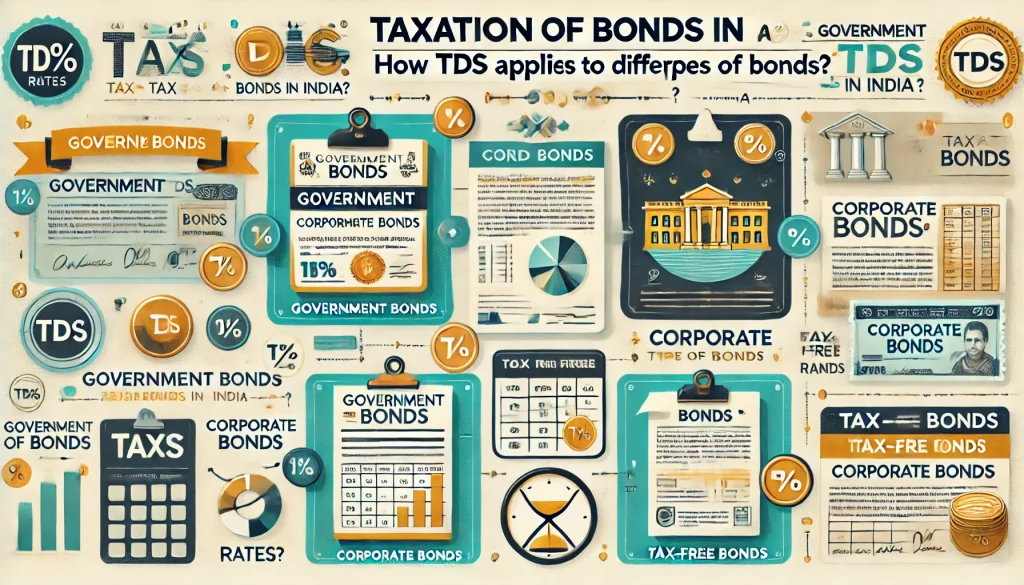
Municipal bond markets in India initially faced challenges despite decentralization efforts. However, recent progress suggests a potential upside. Between 2017 and 2022, Rs. 3,840 crore was raised through municipal bonds. Despite this, grant aid remains the primary method of financing city projects.
Municipal bonds offer a safe investment option as they are backed by the creditworthiness of the issuer, ensure timely interest payments for investors and a stable source of funding for local government projects. Learn more about municipal bonds, their types, risks, benefits, and more.
What are Municipal Bonds?
Municipal bonds or “muni bonds” are debt instruments issued by municipal corporations and related bodies in India to raise funds. These bonds have a fixed maturity and offer investors fixed interest rates. They are used to finance infrastructure projects such as roads and bridges.
Bengaluru Municipal Corporation launched India’s first bond issue in 1997, followed by other cities such as Ahmedabad, Pune and Hyderabad. These bonds are covered by property tax, professional tax or revenues from specific projects.
What are the SEBI Guidelines on Municipal Bonds?
SEBI’s guidelines for issuing municipal bonds in India mandate that –
- A municipal body must maintain a positive net worth for three years before issuing bonds and should not have any defaults on loans or debt securities in the previous year.
- Municipal-connected entities must not be on RBI’s list of wilful defaulters and should not be in default of payments.
- These bonds require a credit rating higher than the investment grade to increase credibility and investor confidence. However, on the secondary market, bond prices may fluctuate based on the municipality’s financial performance, and may appreciate with good performance or otherwise depreciate.
Types of Municipal Bonds
The following are the two most prevalent categories of municipal bonds in India:
1. Revenue Bonds
Revenue bonds are issued to finance specific projects, such as building construction. Once these projects generate revenue, bondholders are paid, including interest, using the funds generated by the project. Earnings are deposited into an escrow account supervised by financial institutions.
2. General Obligation Bonds
General obligation bonds, as the name suggests, are issued to finance general projects such as regional infrastructure improvements. Municipal corporations issue these bonds to finance various projects, all aimed at improving local infrastructure. Repayments and interest are covered by project revenues and taxation after the bonds mature.
List of Municipal Bonds in India
The following cities in India have issued municipal bonds of the following amount in India:
| City | Amount |
| Pune | Rs. 495 |
| Indore | Rs. 140 |
| Lucknow | Rs. 200 |
| Hyderabad | Rs. 200 |
| Bhopal | Rs. 175 |
| Visakhapatnam | Rs. 80 |
| Surat | Rs. 20 |
| Amravati | Rs. 2000 |
| Ahmedabad | Rs. 200 |
Benefits of Investing in Municipal Bonds in India
Following are the benefits of investing in municipal bonds in India that potential investors should be aware of:
1. Stable Income
Municipal bonds in India offer a consistent and reliable stream of income due to their fixed interest rates, making them a reliable option for investors looking for stable income compared to volatile stocks and other securities.
2. Benefits of Diversification
Investing in Indian Municipal Bonds allows for diversification as they are issued by different entities such as state governments and local authorities. This diversification helps in spreading the risk across different sectors and increases the overall stability of the investment portfolio.
3. Economic Impact
The growth of India’s municipal bond market plays a vital role in financing critical infrastructure projects and creating employment opportunities. Favorable policies and increasing investor awareness contributed to this growth. However, investors should be aware of and address risks such as credit and liquidity risks to maintain long-term market stability.
Disadvantages of Investing Municipal Bonds
To make a responsible and well-informed investment decision, you should be aware of the drawbacks of investing in municipal bonds:
1. Extended Lock-in Period
Municipal bonds require a three-year commitment, which impacts investor liquidity. Early secondary market sales can be difficult for bonds issued by unpopular utilities due to credibility concerns.
2. Moderate Interest Rates
While municipal bonds offer higher rates than some debt instruments, they still yield lower returns compared to market-linked investments such as stocks.
Risks Associated with Municipal Bonds
There are certain default risks of investing in municipal bonds. They are discussed below:
- Interest Rate Risk: Market prices of municipal bonds fluctuate with changes in interest rates. Rising rates usually cause existing bond prices to fall, especially for bonds with longer maturities.
- Call Risk: Municipal bonds can be called before maturity, often when interest rates fall, reducing reinvestment opportunities for bondholders. Special buyback provisions can also lead to unexpected challenges.
- Liquidity Risk: Most municipal bonds are not very tradable, so selling before maturity is challenging. This is generally because the secondary market for municipal bonds is not very liquid.
- Income Source Risk: Revenue bonds rely on specific income streams, making them vulnerable to economic shifts. An evaluation of the necessity, sources of income, history of the issuer, legal protection and financial management is essential.
- Credit Risk: Despite a high credit rating, municipal bonds carry the risk of default. Issuers may not make required payments, impacting bondholders.
- Tax Risks: Municipal bonds offer tax benefits but may still be subject to the alternative minimum tax. Selling bonds may result in capital gains or other taxes.
- De Minimis Tax Risk: Market discounts on secondary market bonds may be taxed as capital gains or ordinary income. The de Minimis rule determines the tax treatment based on the market discount and the number of years to maturity.
- Inflation Risk: Inflation can erode the purchasing power of the principal and interest yield of municipal bonds.
- Risk of Rejection: There is a possibility that validly issued bonds could be partially or completely rejected by the issuer for important public purposes.
- Other Risks: Unquantifiable risks such as special events, legal changes, economic downturns or external projects may affect the issuer’s ability to meet financial obligations.
Who Should Invest in Municipal Bonds?
Municipal bonds are assessed based on credit rating before they are made available to the public, which ensures a safe investment, especially for investors who are risk-averse and want stability. It serves as a reliable option for diversifying investment portfolios and mitigating risks.
Additionally, these bonds often offer higher interest rates compared to other fixed-income options. For example, the bonds issued by Pune yielded a coupon rate of 7.5% and the Andhra Pradesh Capital Development Authority provided an interest rate of 8.9%.
Therefore, individuals seeking capital appreciation and assured repayment should consider investing in municipal bonds.
Taxation on Municipal Bonds in India
Tax-exempt municipal securities generally offer interest income that is exempt from government and sometimes state or local income tax depending on where you live. Despite lower coupon rates compared to corporate bonds, the tax-free nature can ensure returns are comparable or even higher.
Original issues of discount held-to-maturity bonds may also qualify for a special tax regime where the difference between the discounted rate and the face value is tax-free income. However, tax consequences may apply during purchase, sale or ownership.
Final Words
In February 2023, Indore Municipal Corporation initiated the inaugural Municipal Bonds for retail investors and issued green bonds worth Rs. 244 crores. These bonds, rated, quoted, taxable, secured and non-convertible, had a nominal value of Rs. 1,000 each and required a minimum application of Rs. 10,000.
Indore Municipal Corp. became the first municipal entity to be listed on the NSE. The offer, which was oversubscribed 5-8 times in various categories, was closed on May 3, 2023, for Rs. 254.50. At the same time, the NSE introduced the first municipal index containing 28 bonds from 10 issuers, all with AA credit ratings. At present municipal bonds total Rs. 2,184 crores, representing less than 1% of the vast Indian bond market of Rs. 190 trillion.
Frequently Asked Questions
A top-rated municipal bond is a relatively safe choice among debt investments due to its low risk of default. However, it is not completely without risk, as there is a small possibility that the issuer may not pay interest or repay the principal when due.
Bonds are generally considered less risky than stocks, but they are not completely risk-free. Factors such as rising interest rates, issuer credit cuts and inflation can affect bond prices and distort yields. Before investing in bonds, it is essential to evaluate these risks and the credit rating of the issuer.
The maturity date, issuing price, face value, coupon date, coupon rate, embedded option, covenants, and amortisation details are the details a municipal bond should include.
The purpose of issuing municipal bonds includes funding municipal projects such as school construction, library construction, construction of parks and pathways, infrastructure construction, funding police and fire departments, etc.


